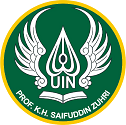Development of Ulos Batak Woven Products in Economic Growth for Sustainable Development
DOI:
https://doi.org/10.24090/icip.v1i1.310Keywords:
ulos batak weaven product, economic growth, sustainable developmentAbstract
The type of research used in this study is a type of qualitative research. As for the data obtained are from books, journals, articles, magazines, news, theses, and other libraries. Indonesia is a country heritage that has a role is Batak ulos weaving products. Batak ulos weaving products are woven fabrics made by the ancestors of the Batak tribe for generation since ancient times. Ulos are usually used as shawls and clothes that have a variety of distinctive and interesting motifs. This ulos cloth is also used for formal events such as weddings, mourning, and traditional event. In the development of ulos Batak products, we can improve the quality and quantity of a product, expand the product market, and increase the added value of products. Batak ulos weaving also has enormous potential that can be sold at a fairly high price. Ulos Batak weaving products can also be exported abroad and are able to compete in the modern market. This is a way to increase the country’s foreigh exchange. In the development of Batak Ulos weaving products has a positive impact on economic growth and sustainable development. However, product development must be carried out with due regard to aspects of sustainability and preservation of culture and the environment. Product exhibitions can also be a means to promote Batak ulos weaving products to the wider community.
References
Aziz, F. A. & Irfangi A. (2021). Analysis of Profit-Sharing Knowledge and Bank Interest on Understanding of Sharia Banking Operational Management and Its Implications for Saving Students in Sharia Banking. PalArch's Journal of Archaeology of Egypt/Egyptology, 18 (3), 525-538.
Aziz, F. A., Utami, H. T., Wanojaleni, K. (2022). Socio-Economic Factors, Islamic Financial Literacy and Personal Financial Management in University Lecturers in Indonesia. Baltic Journal of Law & Politics, 15 (2), 22-31.
Aziz, F. A. (2023). Organizational Revitalization, Future-Oriented Leadership, and Technology-Based Communication: Encouraging Work Motivation and Commitment of Islamic Boarding School Educators in Cilacap Regency. Central European Management Journal, 31 (2), 1282-1294
Warsito, C., Roqib, M., Farhah, N. U., Rochman, K. L., & Suganda, A. (2021). The Influence Of Work-Family Conflict, Interpersonal Conflict And Job Satisfaction Variables On The Turnover Intention Of Hospital Staffs In Purwokerto. Turkish Online Journal of Qualitative Inquiry (TOJQI), 12 (7), 2560-2575.
Warsito, C., Solikhin, I., Farhah, N. U., & Wibisono, D. D. (2022). The Influence of Sharia Banks’ Corporate Image and Sharia Service Standardization on the Intention to Recommend to Others: The Mediating Role of Customer Satisfaction. International Journal of Management and Sustainability, 11 (3), 115-130.
Rindjani, S. F. & Hadi, R. (2022). The Utilization Optimizing of Productive Zakat inImplementation Sustainable Development Goals to Improve Mustahik’s Welfare. Social Science Studies, 2 (5), 368-386.
Hadi, R., Shafrani, Y., Hilyatin, D., Riyadi, S., Basrowi, S. (2024). Digital zakat management, transparency in zakat reporting, and the zakat payroll system toward zakat management accountability and its implications on zakat growth acceleration. International Journal of Data and Network Science, 8 (1), 597-608.
Suwarno, D., Ma'sumah, S., Basit, A. (2023). The Practice of Religious Plurality in The Indonesian National Army. International Journal of Social Science, Education, Communication and Economics, 1 (6), 907-916.
Ma'sumah, S., Hamidi, A. L., Adam, I. T. (2023). Land Profit Sharing For Increasing Productivity. International Journal of Social Science, Education, Communication and Economics, 2 (4), 1003-1012.








